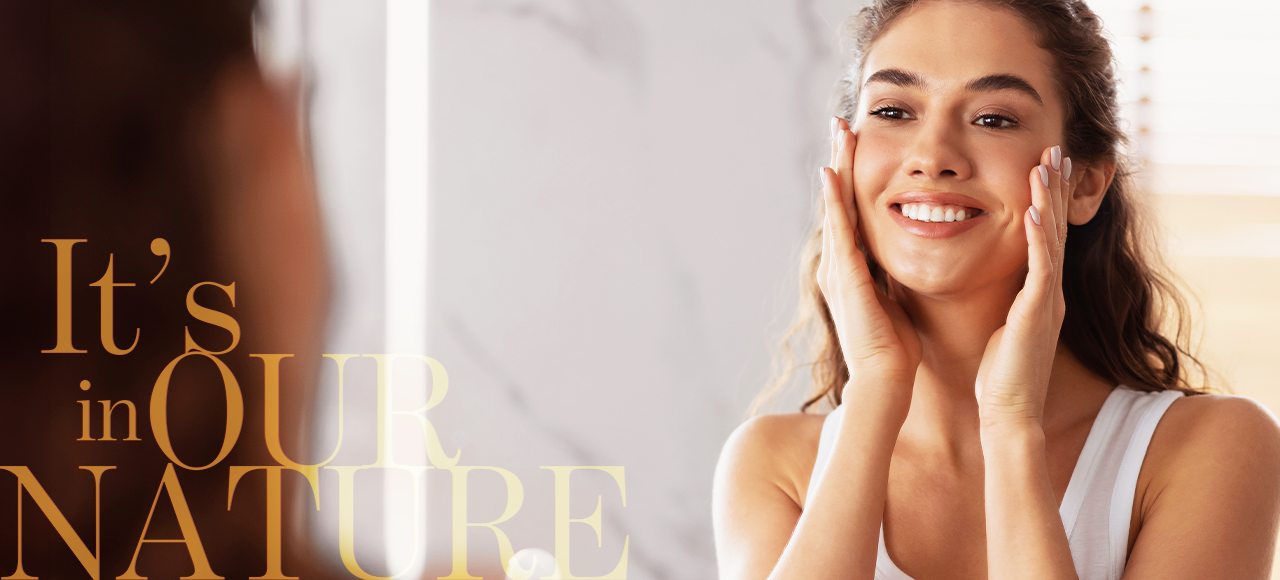What is the value of our skin and how to take care of it?



Sometimes, what is right in front of our eyes is what goes most unnoticed, and we miss the chance to give it its due value. The skin, the largest organ in the human body, is one of those cases that deserves to have its important functions recognized, as well as receiving all our attention and care. After all, it is the first barrier we have to the outside world. Not only does it protect the inside of each one of us, it also represents a portal to intimacy, through the touch and sensations it provides.
Valuing the skin means understanding, specifically, what makes it so essential for our health and well-being. When we are aware of its importance, nurturing the relationship we have with it becomes a priority, which unfolds in a set of daily care, from a balanced diet to a skincare routine.
The valuable functions of the skin
Do you remember learning that the human body is made up mostly of water? The statement remains true, but to this knowledge we could also add that the skin is responsible for preventing its loss, functioning as an impermeable barrier that retains liquids inside.
The largest organ in the human body also has numerous functions that actively protect us against external threats, such as harmful bacteria, allergens, insects and toxins. As a result, when our skin suffers an injury, we are exposed to developing infections that would otherwise be stopped in the first instance. At the same time, healthy skin has the ability to regulate body temperature by dilating blood vessels when heat becomes excessive, and is also able to synthesize vitamin D and protect us from ultraviolet rays through the production of melanin.
The skin as a reflection of health
If the eyes are the mirror of the soul, our skin is the mirror of the organism’s health. A trained eye can find signs of what is happening inside the body by simply observing the epidermis and identifying, for example, signs of dehydration and sleep deprivation. But there are several long-lasting health conditions that subtly manifest themselves in our body’s largest organ: symptoms such as irritation and dryness can be associated with thyroid problems and diabetes, or even appear as a result of taking certain medications. Skin that develops yellowish or grayish tones may indicate chronic illnesses, such as liver or kidney problems, while persistent rashes may be associated with lyme disease or lupus.
In short, the list of reasons why we should appreciate our skin more is extensive and invites us to reflect on the importance of this millimetric layer which, by always being there for us, actively protects us from countless threats in our daily lives and offers alerts on the health status of the body itself.
Taking care of skin from the inside
To properly value our skin, we need to know how to help it fulfill its functions, or, in other words, take care of it so it can take care of us. Although we are susceptible to many factors beyond our control – from the atmospheric and environmental conditions of the place where we live, the exercise of activities that involve greater sun exposure, to genetics itself – we can make efforts to take care of our skin. As fundamental aspects, we highlight:
Adopt a balanced diet
The vitamins and minerals found in fresh food products can contribute to healthy, glowing skin. In general, it is recommended to adopt a diet rich in fruits and vegetables that contain magnesium, vitamins B and A, and vitamins C and E, the last two being important antioxidants. Also try to include specific foods in your diet that promote the skin’s ability to regenerate, such as salmon, spinach, honey, blueberries and nuts.
Drink plenty of water
It cannot be said enough: drinking plenty of water (between 1.5L and 3L, depending on body weight) and maintaining hydration levels throughout the day is essential for the health of the body, and, therefore, will help your skin to fulfill its natural functions, while allowing it to eliminate toxins. On the other hand, you should avoid alcoholic beverages as much as possible, as drinking them can promote skin aging and create a dull, lifeless appearance.
Learning to manage stress
It is possible that you have already experienced periods of great stress and have suffered its consequences on your skin, with the appearance of rashes. This happens because the skin and the mind share a strong connection – a theme that will, in fact, be a trend in 2024 and we talked about it in this article – and influence each other. Note that cortisol, the stress hormone, can even damage collagen, impairing skin’s elasticity and smoothness. As such, it is essential to understand which strategies are best suited to you in order to effectively reduce stress. We share with you some suggestions: go to bed earlier and prioritize sleep, take daily walks or exercise in a gym, among others.
Taking care of your skin from the outside
Finally, remember that caring for your skin involves following a routine that can be summarized in three simple steps:
Cleansing
Cleanse your skin once or twice a day to unclog pores and stimulate its regeneration. You should use products suited to your specific needs and use gentle movements, avoiding eliminating the skin’s natural oils. Don’t forget: if you wear makeup, always remove it before going to bed.
Hydration
Applying moisturizer is a fundamental step in any self-care routine. It contributes to the skin’s appearance, helping to keep it healthy and youthful. Moisturized skin cells regenerate more easily, making it more resistant to possible damage.
Protection
Before leaving the house, make sure you have applied sunscreen with a minimum factor of 30 SPF. Protection from ultraviolet rays is essential to prevent the appearance of signs of aging and hyperpigmentation spots, and can also prevent skin cancer.
Learn more about an ideal skincare routine in this article.
Sources: American Academy Of Dermatology Association; Colorado Skin Surgery & Dermatology; Healthline.




